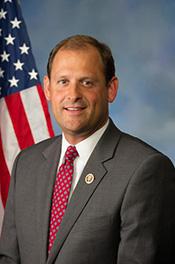H.R. 3230: Financial Institution Regulatory Tailoring Enhancement Act
This bill, titled the Financial Institution Regulatory Tailoring Enhancement Act, aims to amend existing regulations concerning financial institutions based on their asset sizes. Specifically, the bill proposes to increase the asset thresholds that determine the regulatory requirements for various financial institutions, effectively raising the limit from $10 billion to $50 billion.
Increased Asset Thresholds
The key provisions of the bill include:
- Bureau Supervision: Changes to the Consumer Financial Protection Act (CFPA) would increase the asset threshold for certain supervisory requirements from $10 billion to $50 billion. This means that fewer financial institutions would be subjected to oversight from the Consumer Financial Protection Bureau (CFPB) if they have assets under this new threshold.
- Volcker Rule Requirements: The Volcker Rule, which restricts certain investment activities by banks, would see its asset threshold raised to $50 billion as well. This alteration means smaller banks would be exempt from these rules unless they exceed this new asset limit.
- Qualified Mortgage Requirements: The thresholds for qualified mortgages would similarly be adjusted to $50 billion. This could change the types of loans that packaged mortgages would need to meet to be considered safe and secure, potentially impacting smaller lenders.
- Leverage and Risk-Based Capital Requirements: The bill would also alter the asset limit for leverage and risk-based capital requirements from $10 billion to $50 billion, reducing the regulatory burden on smaller institutions regarding their capital requirements.
Rationale for the Bill
The rationale behind increasing these thresholds is to lessen regulatory constraints on smaller financial institutions, which supporters argue can facilitate lending and improve the financial marketplace's competitiveness. The legislative intent is to create a more favorable environment for institutions with assets below the new threshold, allowing them to operate with reduced regulatory oversight.
Potential Impact
By raising the asset limits, the bill could impact the stability and oversight of financial institutions. Proponents argue that it can benefit smaller banks and credit unions, enabling them to better serve consumers without facing the heavy compliance costs associated with larger financial institutions. Critics, however, may express concerns that these changes could lead to insufficient oversight and pose risks to consumers and the financial system.
Relevant Companies
None found
This is an AI-generated summary of the bill text. There may be mistakes.
Sponsors
3 bill sponsors
Actions
6 actions
| Date | Action |
|---|---|
| Jun. 20, 2025 | Placed on the Union Calendar, Calendar No. 132. |
| Jun. 20, 2025 | Reported (Amended) by the Committee on Financial Services. H. Rept. 119-165. |
| May. 21, 2025 | Committee Consideration and Mark-up Session Held |
| May. 21, 2025 | Ordered to be Reported (Amended) by the Yeas and Nays: 29 - 23. |
| May. 07, 2025 | Introduced in House |
| May. 07, 2025 | Referred to the House Committee on Financial Services. |
Corporate Lobbying
0 companies lobbying
None found.
* Note that there can be significant delays in lobbying disclosures, and our data may be incomplete.
Potentially Relevant Congressional Stock Trades
No relevant congressional stock trades found.


